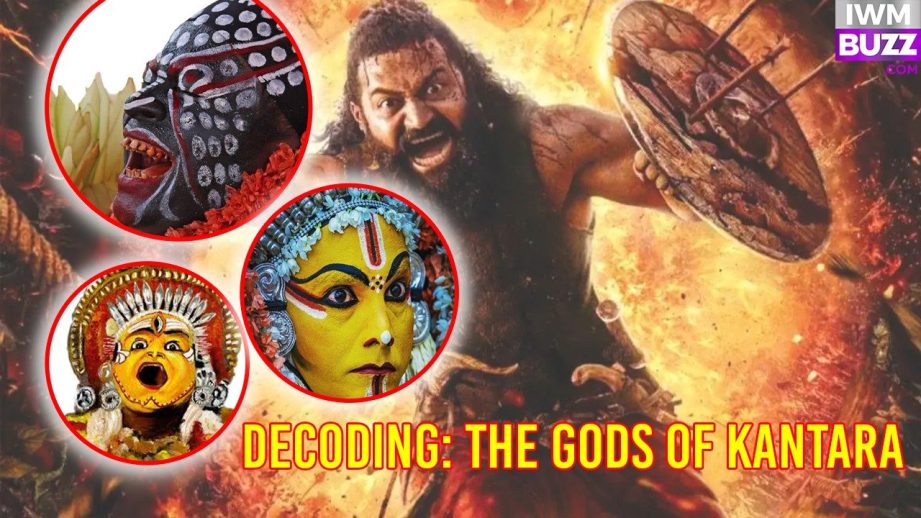
The gods of Kantara are not distant abstractions, locked away in ancient texts or marble temples. They are fierce, elemental forces—born from earth, blood, and the untamed wilderness of Tulunadu, the coastal stretch of Karnataka and Kerala. Rishab Shetty’s Kantara revives that fury. It deciphers a language of the land, a spiritual code etched into rituals, myths, and the very soil of a people whose bond with nature remains unbroken.
Panjurli Daiva: The Boar That Demands Justice
Panjurli is the pulse of this story. A boar-god born from chaos and compassion, his myth is as old as the soil itself. Orphaned in the celestial gardens, wild and destructive, he’s killed and resurrected — sentenced to guard the earth’s fragile edges.
In the film, Panjurli isn’t just a character. He’s a force that inhabits bodies, speaking directly to power—challenging kings and landlords who claim what isn’t theirs. His boar mask is a warning and a shield. Not a symbol to admire from afar, but a call to reckon with.
Guliga Daiva: The Fierce Enforcer
Panjurli’s story is incomplete without Guliga—the angry, unforgiving guardian. Born from sacred ash, part serpent, part tiger, Guliga is the harsh judge. He punishes, consumes evil, and protects without mercy.
Where Panjurli negotiates, Guliga enforces. Their battle and eventual truce speak to a balance between mercy and fury, protection and punishment. In Kantara, Guliga’s presence looms over struggles against land theft and injustice—a reminder that some fights are non-negotiable.
Bhuta Kola: Ritual as Raw Power and Resistance
This is no staged ritual. Bhuta Kola is a radical act—performed by marginalized communities, outside temple walls and sacred scripts. Masks, drums, fire, trance: the gods manifest in flesh and blood.
When the spirit arrives, the performer becomes the god. The village listens. Feuds end. Prophecies are spoken. Power shifts. This ritual isn’t just culture—it’s survival. Kantara captures this raw energy without exoticizing it, grounding the myth in real villages and real struggles.
Why Kantara’s Gods Matter Today
The gods of Kantara refuse to be sidelined. They’re not just folklore but urgent voices in a world where land, identity, and justice are under threat. By connecting Panjurli to Vishnu’s Varaha and Guliga to Shiva’s ganas, the film weaves these local deities into the wider Hindu cosmos—but without diluting their primal power.
Decoding these gods means understanding a world where the sacred is political, where spirits rise in protest, and where stories aren’t just told—they fight.
